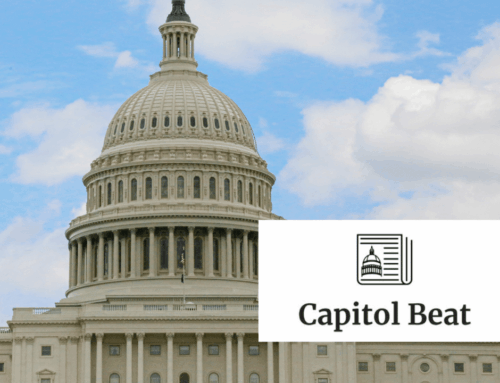The biggest lesson that Washington lawmakers should have taken from the 1995 government shutdown is that people of all political stripes expect their elected leaders to get the job done funding the government. Unfortunately, both ends of Pennsylvania Avenue are once again showing that history has taught them nothing.
Next week, the temporary funding Congress provided for the fifteen cabinet departments will run out, and Congress has still only passed one of the twelve spending bills to fund all of government.
There are three possible outcomes. The most likely scenario is a massive final spending bill—an omnibus bill—that will roll the remaining eleven spending bills into one, run thousands of pages long, and will only emerge a day or so before passage leaving no time for anybody to actually read it before passage. The second option is for Congress to implement a “kick-the-can strategy” that punts the budgetary decisions to after the holidays by passing another continuing resolution. The final option is a government shutdown.
To say that we are facing a “budget train wreck,” is stating the obvious. Last year, only two of the twelve spending bills were enacted while the rest of the government was funded at 2006 levels by a “continuing resolution.” Presaging that debacle, the only spending bill the Senate got done before the August recess was for the Department of Homeland Security. This year, the only one done by that same benchmark was…Homeland Security. The only bill actually enacted so far this year – nearly at the end of the first quarter of FY08 – is the defense bill. The only way to get the budget passed is to send bills to the White House, and on this point Congress utterly failed to deliver.
Congressional Democrats originally planned to send the President $22 billion more in spending than he had requested, but the President has promised to veto bills exceeding his top line budget number. Now Congress is considering a split-the-difference approach. The omnibus would still exceed the President’s request, but only by $11 billion.
As a compromise, House Appropriations Chairman Obey (D-WI) proposed chopping back the billions of dollars in Congressional earmarks. This elicited shrieks of terror from the spending barons in the Senate. But it would be a pretty cynical maneuver to preserve their parochial earmark pork while paring back their self-identified spending priorities.
It may not even matter. The President has rattled his veto saber over the sight-unseen spending proposal from the Democrats. To try to sweeten the pot, there is talk from Congress of including millions in emergency defense spending and other goodies. The idea behind this is to use the defense spending to get the President to back off his veto threat, or to attract enough Republicans to override a veto.
It is not surprising that approval ratings for Congress and the President are close to record lows. To start the climb out of the basement, the answer is simple. Stop jockeying around, rattling sabers and sweetening deals, and start doing your constitutionally appointed duties.
Congress needs to pass its spending bills. They should reduce total funding levels and earmarks and dare the President to veto the package. If he does, he should tell them what he could sign when he kicks it back. He compromised with a Republican Congress, and should be able to do the same with the Democrats. After all, the President let Republican Congresses avoid vetoes by splitting the difference with them on the $286 billion highway bill in 2005, and in 2002 he rolled over on the $274 billion Farm Bill. Congress and the President should work together to give the gift of a federal budget to the very deserving American people this holiday season.










